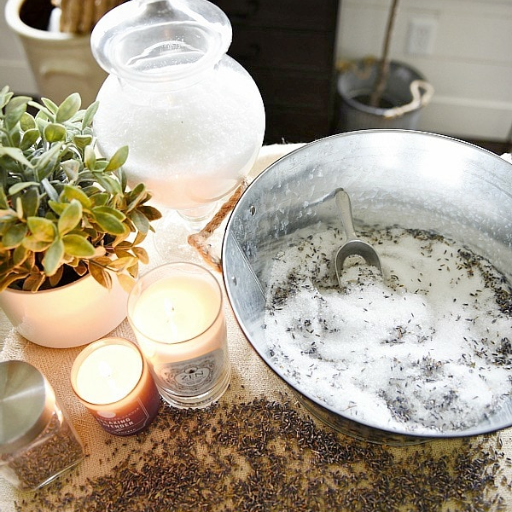Epsom salt, composed of magnesium sulfate, has been hailed since long ago for its healing effects on gardening and plant care. This guide goes deep into how to enhance plant health and growth using Epsom salt effectively. Magnesium’s role in photosynthesis and soil quality improvement are the scientific aspects we will delve into in this article, among others, as well as various techniques to use on different plants. Growing a thriving vegetable garden or nurturing sensitive indoor plants requires you to know Epsom salt’s importance in leading to lush green leaves for your garden, thereby making it vibrant.
How Much Epsom Salt Should I Use Epsom Salt for Plants?

How much Epsom salt should I add to a gallon of water for my tomato plants?
The recommended dose of Epsom salt for tomato plants is approximately one tablespoon per gallon of water. This concentration provides an appropriate ratio of magnesium, which supports healthy growth and facilitates nutrient uptake, thereby enhancing fruiting. The best time to give your plants this solution is every 4-6 weeks during the growing season; ensure that you stir it well and water it abundantly to achieve optimum results.
How often should I use Epsom salt in garden soil?
You can apply epsom salts on garden soil about once every four to six weeks after the planting period. This frequency ensures the plants have adequate magnesium supplies for chlorophyll production and overall health. For maximum effects, use around one tablespoon of Epsom salts per gallon when putting down this solution for garden purposes. Water thoroughly after mixing, ensuring the magnesium gets absorbed into the plant effectively at its base. Also, if your soil lacks magnesium, a soil test will help you know how much and how often you should do that to create the right conditions for your crops.
Is there such a thing as too much Epsom salt?
Definitely yes. However, generally, I never go beyond one tablespoon per gallon, ladies and gentlemen. Overuse can lead to the build-up of magnesium in your soil, which might interfere with the uptake of nutrients and cause plant stress symptoms. In my case, yellow leaves and stunted growth are some indicators that show that I put more than was needed by my tomato plants in their growth process because they were being strained, thus showing signs of weakness. It is, therefore, vital for me to keep assessing my soil’s fertility needs regularly and adjust accordingly so as not to cause malnutrition in my crops since this may hinder a balanced nutrition supply and, hence, poor development.
What Are the Benefits of Using Epsom Salt in the Garden?
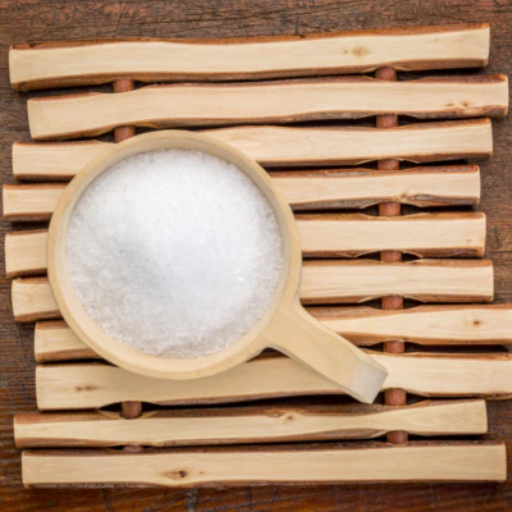
What is Epsom salt? Is it good for plant food?
I have gained a lot of insights about gardening and how beneficial Epsom salt can be in growing plants. This is mainly because it contains enough magnesium and sulfur, vital nutrients for plant health. Magnesium is responsible for producing chlorophyll, which is essential in photosynthesis, where light energy from the sun gets converted into chemical energy through chlorophyll. Sulfur aids in synthesizing amino acids and protein compounds responsible for overall plant growth and resilience.
From my research on the best gardening websites, I have come to learn that using Epsom salt can result in the following:
- Improved Nutrient Uptake: Magnesium facilitates the absorption of significant nutrients such as nitrogen and phosphorus, which enhances plant well-being.
- Enhanced Seed Germination: Epsom salts can improve germination rates, making the plants healthier and more robust.
- Reduction of Blossom End Rot: Vinegar can control calcium deficiency-induced blossom end rot in tomatoes and peppers.
Here are some key technical points to note:
- Application Rate: I use about one tablespoon per gallon of water to maintain an appropriate magnesium level that does not overwhelm the soil.
- Soil pH: It’s necessary to take care of soil pH since the excessive presence of magnesium may cause imbalances; ideally, it should range between 6.0 and 7.0 for most plants.
- Timing: My regular practice is administering Epsom salts during peak nutrient uptake periods every 4 – 6 weeks within the growing season.
These benefits, instructions on how to apply it, and knowledge about soil chemistry enable me to effectively employ Epsom Salt to promote healthy garden plants that grow well.
How does Epsom salt help plants grow?
Epsom salt primarily helps plant growth via its high magnesium and sulfur levels, essential minerals. From my personal experience, I have discovered that magnesium aids in producing chlorophyll, which is necessary to convert sunlight into energy through photosynthesis. Furthermore, sulfur supports healthy plant development by contributing to the synthesis of amino acids. As top gardening sites indicate, it can improve nutrient uptake and encourage stronger seed germination while avoiding problems such as blossom end rot in tomatoes. Overall, including Epsom salts in my gardening practice has made remarkable differences in the health and growth of plants.
Can Epsom salt prevent blossom end rot in tomatoes?
Yes, Epsom salt can help avoid blossom end rot among tomatoes. Calcium deficiency is a common cause of this condition; however, magnesium is involved with calcium absorption within a plant. When I use Epsom salt to treat my soil for magnesium deficiencies, I increase magnesium supply and enhance nutrient uptake, thus enabling better plant growth. From what I learned from several major gardening sites among other things about maintaining proper levels of essential soil nutrients and water content which affects blossom end rot on tomato plants since applying Epsom salts during growing seasons there is a decrease in its occurrence at all these points where it usually starts from in my garden practices.
How Do I Apply Epsom Salt to Plants?
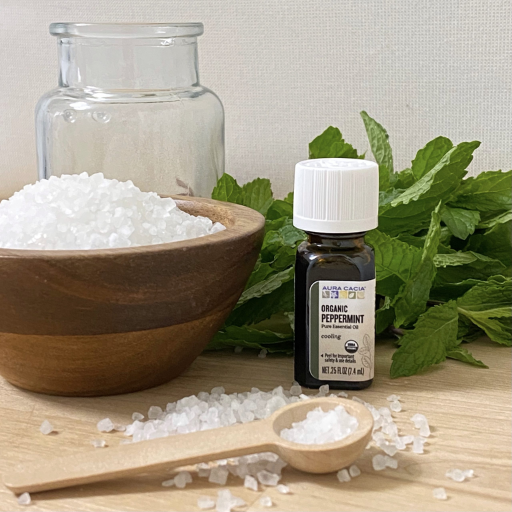
Is it necessary to spray or pour Epsom salt on the ground?
When I put Epsom salts into my plants, I bypass the leaves and go straight into the soil. I learned from major gardening websites that dissolving a tablespoon of Epsom salt in 1 gallon of water has proved most effective. When used this way, magnesium and sulfur become available to be absorbed by roots as soon as possible to make nutrient uptake more efficient. Additionally, you can seek comfort in knowing that applying it every four to six weeks during this time will maintain optimum plant health.
Can Epsom salt be diluted for plants?
Usually, when diluting Epsom salts for plant use, I take a simple approach, as recommended in various top gardening sites. Therefore, one gallon of water should contain only one tablespoon of Epsom salt so as not to overfeed the crop while providing enough nutrients with sulfur and magnesium at beneficial concentrations. Ensure you dissolve all salts entirely before applying them since uniform distribution is vital when put into the soil. According to my findings, this concentration supports optimal nutrient uptake and growth if applied around the plant base once in four to six weeks within the growing period. At this frequency, though, it is often enough for plants to utilize added magnesium to foster overall health.
Can we apply Epsom Salt around the base of a plant?
Yes! My understanding is that Epsom Salt works well if used around the foot of a tree or plant. From information sourced from top gardening websites, including those published by horticultural societies such as RHS (UK) and Agriculture (US), it follows that applying directly onto the soils ensures the presence of Magnesium (Mg) & Sulphur (S) required by plants for their development purposes respectively. The suggested technical parameters dictate approximately one tablespoonful of Epsom salt dissolved in one gallon of water for use. In cases of such solution, even when poured into the soil around the plant’s stem, its nutrients will also go through the roots. It is important to note that magnesium aids photosynthesis in this manner, whereas sulfur helps synthesize the basic amino acids that make proteins. Following this routine can make your plants healthier throughout their lifetime when you apply every 4-6 weeks during the growing season.
Can Epsom Salt Be Used on All Types of Plants?
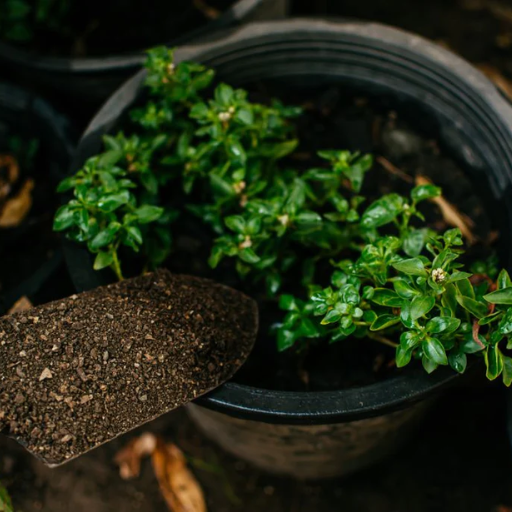
Can Epsom salts be used on roses and similar plants?
I think Epsom salt is good for roses and other perennials. According to my findings on the best horticulture sites, Epsom salt is an excellent magnesium source that enhances flowering and overall plant health. It also contributes to better nutrient intake in other perennials, and the use of it as a rose supplement has been recommended by many experts who also say it strengthens the plant’s blooms. The advised method of application remains unchanged: using diluted solution around the roots of plants can help them grow well; therefore, I will incorporate Epsom salt into my gardening routine.
Can Epsom salt be used with potted plants or houseplants?
You can use Epsom salt with potted plants or houseplants. Based on my findings from reviewing top gardening websites, I found out that these plants require magnesium and sulfur, essential nutrients they can obtain from Epsom salt. A tablespoon of this product is mixed in one gallon of water, just like for garden plants. To ensure this solution gets to the root system, one should pour it at the base of these flowers every four to six weeks during their growth period. Additionally, my indoor plants grow stronger due to this technique, encouraging flowering because they take up more nutrition.
Does Epsom Salt work for vegetable garden plants?
Yes, vegetable garden plants gain benefits from being treated with Epsom salts. This information is from some research results obtained from reliable gardening sites; considering magnesium deficiency plays a vital role in plant growth and development, both physiological processes are essential for the proper functioning of living systems, i.e., chlorophyll synthesis (carotenoid pigments) as well as protein synthesis (amino acids). In most cases, one tablespoon full of EPS mixture will be enough if diluted in 1 gallon of water and then distributed around the root zone for vegetables every month. This will ensure better uptake of nutrients and result in healthier growth and better yields, especially with tomatoes, peppers, and leafy greens. Thus, by incorporating Epsom salt into my gardening routine, I can give my vegetable plants essential nutrients for optimal growth.
What Are Common Mistakes When Using Epsom Salt on Plants?
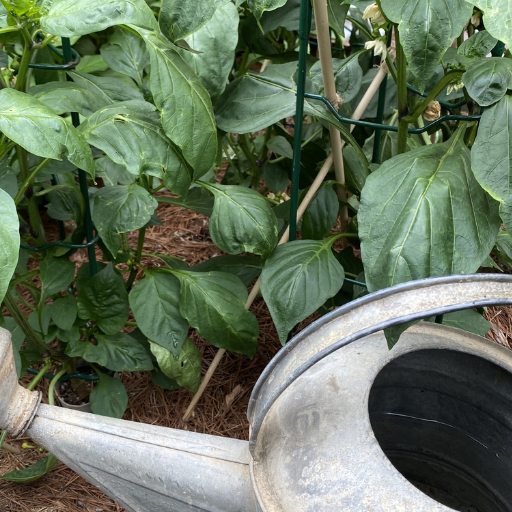
How to know if your plants are not responding to Epsom salt
There are signs that my plants do not respond well to using Epsom salt. For example, yellow leaves that curl inward indicate an overuse of Epsom salt, which results in out-of-balance crop nutrition. Similarly, stunted growth or wilting may indicate a magnesium oversupply blocking the uptake of other essential nutrients such as potassium and calcium.
Here are some standard technical parameters from the top gardening websites I have looked at:
- Soil pH: Ideally, Epsom salts work best under slightly acidic to neutral soil conditions (about 6-7). A too-high or too-low pH affects nutrient absorption.
- Magnesium Levels: When magnesium levels exceed 200 mg/kg in soil tests, adding Epsom salt may be unnecessary and can lead to toxicity.
- Application Frequency: Too much application beyond one tablespoon per gallon water intake every four to six weeks is harmful. I need to understand the micro variations required by each plant species.
I can thus support healthier growing plants by observing and adjusting Epsom salt usage accordingly.
What happens when you put too much Epsom salt into garden soil?
Putting too much Epsom salts in my garden can seriously impact the soil’s health. Excess magnesium tilts the balance against other nutrients, especially calcium and potassium, necessary for plant growth. Furthermore, excessive magnesium could reduce soil structure quality, leading to compaction and poor drainage. I found out from my research on top gardening websites that consistently high levels of magnesium produce a toxic environment for my plants, resulting in nutritional deficiencies; therefore, they stop growing. Consequently, I must monitor the nutrient levels within my soil and apply Epsom salts sparingly.
Are there any specific plants that do not benefit from using Epsom salt?
Some plants do not gain anything from Epsom salt. For example, beans and peas are legumes that, according to my research across top gardening websites, have the ability to fix nitrogen and usually do not require extra magnesium. Similarly, high magnesium levels can also damage ferns and succulents among houseplants. Some of my plants don’t need the extra magnesium from Epsom salt, so I need to know what they need.
Reference sources
Frequently Asked Questions (FAQs)
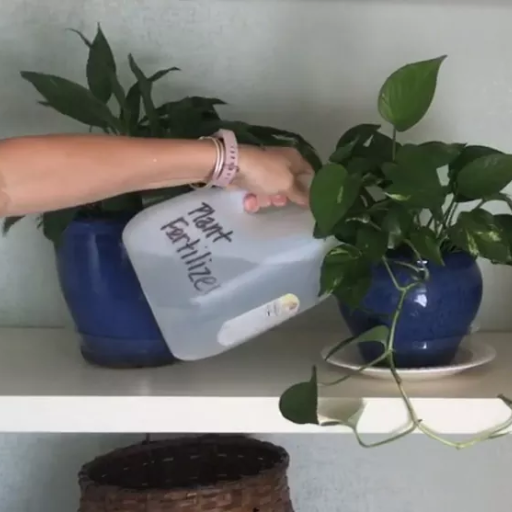
Q: How can I use Epsom salt as a plant fertilizer?
A: Epsom salt can be used as a fertilizer by adding it directly to the soil. To create an Epsom salt solution, dissolve two tablespoons of Epsom salt in a gallon of water. Use this solution to water your plants every few weeks.
Q: Are coffee grounds beneficial for adjusting soil pH when using Epsom salt?
A: Yes, coffee grounds can help in adjusting soil pH. While Epsom salts do not contain elements that directly alter soil pH, adding coffee grounds to the soil and Epsom salt can improve soil acidity, which is beneficial for specific plants.
Q: How often should I apply Epsom salt to my peppers and tomatoes?
A: Add one tablespoon of Epsom salt per foot of plant height every two weeks for peppers and tomatoes. This helps provide the necessary magnesium and sulfur, making plants grow bushier and greener.
Q: Can foliar spray with Epsom salt help my plants?
A: A foliar spray made from Epsom salts can help your plants absorb nutrients more efficiently. Mix two tablespoons of Epsom salt in a gallon of water and spray it on the leaves of your plants to encourage growth and improve overall health.
Q: What are the benefits of using Epsom salt in my garden?
A: Epsom salt contains magnesium and sulfur, essential for plant growth. Using Epsom salt can enhance nutrient absorption, improve photosynthesis, and help produce chlorophyll, making plants greener and healthier.
Q: Is Epsom salt effective in repelling garden pests?
A: Epsom salt is not a pesticide but can deter certain garden pests. Sprinkling a cup of Epsom salt around plants can help reduce pest activity by creating a less favorable environment for pests to thrive.
Q: Can I use Epsom salt and coffee grounds to grow food?
A: Yes, you can grow food using a combination of Epsom salt and coffee grounds. Epsom salt enhances your plants’ nutrient intake and health, while coffee grounds can improve soil structure and add nitrogen, aiding in better growth and yield.
Q: How does Epsom salt help pepper plants specifically?
A: Epsom salt helps pepper plants by providing them with essential magnesium, crucial for photosynthesis and fruit production. Adding one tablespoon of Epsom salt per foot of plant height can help your pepper plants grow stronger and produce more fruit.
Q: Can Epsom salt deplete the soil of any nutrients?
A: Epsom salts do not contain elements that would deplete the soil of nutrients. They provide essential nutrients like magnesium and sulfur, which benefit most plants.
Q: What do the experts say about using Epsom salt in gardening?
A: According to the National Gardening Association, Epsom salt can be beneficial when used correctly. When added appropriately, it helps address magnesium deficiencies and can enhance plant growth and productivity.



